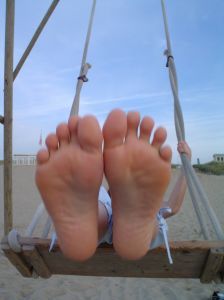Productivity
This Fall, Get in the Swing of Doing Less
Why you should schedule time to be unproductive
Posted August 26, 2012

Like other teachers and students, I am busily preparing for a brand new academic term, including creating a schedule around my classes. The temptation is, as Rick Hanson, neuropsychologist and Psychology Today blogger, puts it, “to stuff as much as possible into whatever room is available.” An extra hour between classes? I can fit in some grading. A two-hour block of time on Tuesdays? Why not use it to squeeze in more freelance projects or volunteer activities?
Before I know it, my daily calendar resembles a crowded Tetris screen, with very little wiggle room for additional movement, much less breathing.
Our culture of productivity might cause us to think this is a good thing, but I tend to agree with Cal Newport, an Assistant Professor of Computer Science at Georgetown University and the author of three books of “unconventional advice for students” and the popular Study Hacks blog, that rather than continually strive to do more, we might want to do less, even when it's not popular:
“People express strong feelings about their expectations for the modern academic experience, and to many you might encounter, the idea of doing less will prove simply inconceivable, and perhaps even offensive. But as you start your fall semester ... remember that these strong feelings have no deep support and are likely of little real consequence.” Read More
Newport isn’t saying that we throw up our hands and surrender hope of ever accomplishing another thing. The other two of his triumvirate of rules for living a life that is both productive and enjoyable are “Do Better” and “Know Why.” While his advice is targeted to students, the message is just as relevant for adults who routinely overschedule themselves, rushing through each day like tightly wound automatons and packing as much in waking hours as possible, then wondering why they fall into bed at night, minds racing, hearts pounding, anxiously awaiting another day of real-life Tetris.
Rick Hanson, whose most recent book is Just One Thing: Developing a Buddha Brain One Simple Practice at a Time, suggests that we can begin to empty our days by deliberately putting "some space between finishing one thing and starting another.” If we don’t want to do it for ourselves, we can consider doing it for our children. What child wouldn’t prefer a parent who has plenty of transition time between activities, for whom rushing from one event or appointment to the next is the exception rather than the rule, and who views time as an ally rather than the enemy? Scheduling cushions of time lessens the stress of inevitable traffic jams and late appointments and makes it more likely that we will experience a little mindfulness in our day.
Let’s not kid ourselves. Sticking firm to regular blocks of unproductive time is not easy in today's rush to do more rather than less. You will disappoint people, and it takes more than a little courage. The potential pay-off, however, is nothing less than life-changing.
This poem by Ted Kooser is a lovely way to get into the (slower) swing of back to school:
Porch Swing in September
by Ted Kooser
The porch swing hangs fixed in a morning sun
that bleaches its gray slats, its flowered cushion
whose flowers have faded, like those of summer,
and a small brown spider has hung out her web
on a line between porch post and chain...


